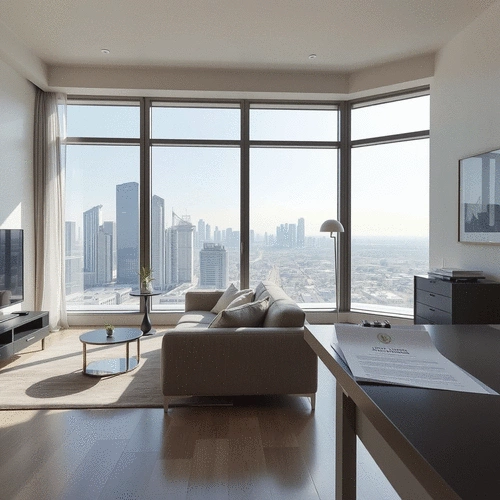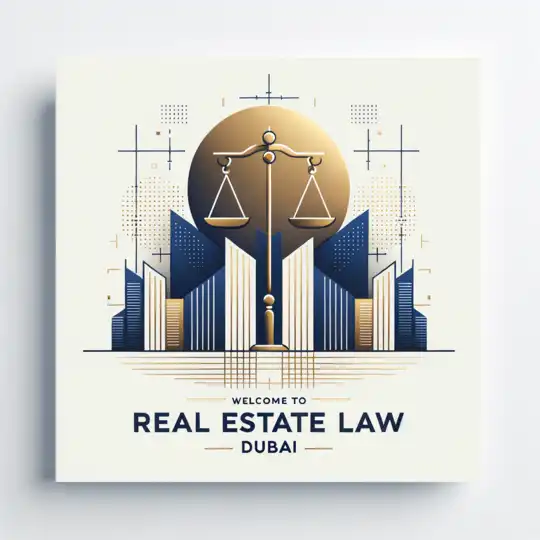As we navigate the complexities of renting in Dubai, understanding your rights is not just advantageous—it's essential. With recent changes in tenancy laws for 2025, both tenants and landlords must be aware of the evolving landscape to ensure fair and equitable rental experiences.
What You Will Learn
- Stronger tenant protections are now in place, guarding against unjust eviction.
- Landlords have stricter maintenance obligations to ensure safe living conditions.
- Lease agreements must now adhere to clearer guidelines, reducing ambiguity for tenants.
- Tenants possess fundamental rights, including safe housing, privacy, and fair treatment.
- Understanding eviction regulations can help tenants navigate notice periods and formal procedures effectively.
- The Rental Dispute Center streamlines conflict resolution, offering structured mechanisms for both parties.
- Effective communication strategies can prevent disputes and foster positive landlord-tenant relationships.
Key Changes in Dubai's Tenancy Laws for 2025
Several notable updates to tenancy laws in Dubai will impact tenants and landlords alike. Below is a visual representation of these changes. For a comprehensive guide to property law in Dubai, you can also explore navigating Dubai property law basics.
Stronger Tenant Protections
New regulations provide enhanced protection against unjust eviction, ensuring tenants have more security in their living arrangements.
Maintenance Obligations
Landlords are now required to meet stricter maintenance standards, ensuring properties are safe and well-maintained.
Transparency in Lease Agreements
Clearer guidelines are set for lease agreements, reducing ambiguity for tenants and promoting better understanding of rental terms.
Importance of Tenant Rights
Knowing your rights can make a significant difference in protecting against unfair practices and enhancing negotiation power.
Understanding Dubai's Tenancy Laws: Overview for 2025
As we step into 2025, it's crucial for both tenants and landlords to grasp the changes in Dubai's tenancy laws. Understanding these laws is not just about compliance; it's about protecting your rights and ensuring a smooth rental experience. With the evolving real estate landscape in Dubai, tenant rights have become more significant than ever, and being informed can save you from legal troubles down the road!
Context and Importance of Tenant Rights in Dubai
Tenant rights in Dubai have been a hot topic, especially with the rapid growth of the rental market. It's essential to know that your rights as a tenant are not only about where you live but how you live. These rights help maintain a fair and balanced relationship between tenants and landlords, ensuring that everyone fulfills their obligations.
Have you thought about the implications of not knowing your rights? From facing eviction notices to dealing with substandard living conditions, a lack of awareness can lead to significant issues. That's where understanding these laws comes into play, and at Real Estate Law Dubai, I strive to empower you with the knowledge you need! For detailed information on your entitlements, explore our guide on tenant rights in Dubai rentals.
Why Knowing Your Rights Matters for Renters
Knowing your rights as a renter can make all the difference! Here are a few reasons why:
- Protection Against Unfair Practices: Understanding your rights can shield you from unfair treatment by landlords.
- Enhancing Negotiation Power: Being informed gives you leverage to negotiate better terms in your lease.
- Promoting a Safe Living Environment: Knowing what you’re entitled to helps ensure your home is safe and well-maintained.
Key Changes in 2025 and Their Implications
As we move forward into 2025, several changes in tenancy laws are making waves. Here are some notable updates:
- Stronger Tenant Protections: There are new regulations that provide enhanced protection against unjust eviction.
- Maintenance Obligations: Landlords are now required to meet stricter maintenance standards, ensuring properties are safe.
- Transparency in Lease Agreements: Clearer guidelines are set for lease agreements, reducing ambiguity for tenants.
These changes not only benefit tenants but also create a more sustainable rental market in Dubai. By staying informed, you can make better decisions about your rental agreements!
In-Depth Look at Tenant Rights in Dubai
Delving deeper into tenant rights is essential for fostering a harmonious rental experience. Understanding these rights can empower you as a tenant, ensuring you have a safe and compliant living space. Let’s explore the essentials!
Essentials of Tenant Rights Under Dubai Law
Every tenant in Dubai deserves to know their rights under local law. These rights serve as a foundation for a successful rental relationship. Some fundamental rights include:
- Right to a Safe Home: Tenants are entitled to live in a property that meets health and safety standards.
- Right to Privacy: Landlords must respect your privacy and cannot enter the property without your permission.
- Right to Fair Treatment: You should be treated equally and without discrimination during the rental process.
Rights to Safe and Maintained Living Conditions
Living in a safe and well-maintained environment is a basic right every tenant should enjoy. Landlords are obligated to address repairs and maintenance issues promptly. If you notice anything amiss, don’t hesitate to notify your landlord; it’s your right to live comfortably and safely!
Moreover, if issues persist, knowing how to escalate them is crucial. If your landlord fails to address repairs, you may have grounds to report them to the appropriate authorities. At Real Estate Law Dubai, I’m here to guide you through that process! For comprehensive legal support, consider our Dubai real estate lawyer services.
Eviction Notice Regulations and Procedures
Eviction notices can be daunting, but knowing the correct procedures can help you navigate them. In Dubai, landlords must provide a formal written notice before evicting a tenant. Here are some key points to remember:
- Notice Period: Landlords must give tenants a notice period (usually 90 days) before initiating eviction.
- Written Communication: Eviction notices must be in writing and specify the reasons for eviction.
- Access to Legal Aid: Tenants have the right to seek legal advice if they believe the eviction is unjust.
Understanding these regulations not only prepares you for any potential issues but also helps you assert your rights confidently! Remember, knowledge is power when it comes to navigating your rental journey in Dubai.
Pro Tip
Did you know? Keeping a detailed record of all communications and agreements with your landlord can significantly strengthen your position in any dispute. Whether it’s emails, texts, or written notices, documentation serves as crucial evidence if conflicts arise. This proactive approach not only protects your rights but also fosters a more transparent relationship with your landlord!
Navigating Dispute Resolution in Dubai's Rental Market
When it comes to renting a property in Dubai, disputes can arise. Whether it's about late payments or maintenance issues, understanding how to navigate these situations is crucial. At Real Estate Law Dubai, I often emphasize that knowing the dispute resolution mechanisms available can save you time, money, and stress.
In this section, we’ll explore the improved mechanisms for resolving rental disputes, the role of the Rental Dispute Center, and some common conflicts you may encounter. Being well-informed about these processes can empower both tenants and landlords, ensuring smoother interactions in the rental market.
Improved Mechanisms for Resolving Rental Disputes
When a rental dispute emerges, it’s important to know how to address it effectively. Here are the steps you should take to initiate dispute resolution:
- Document the issue: Keep records of communications, agreements, and any relevant documents.
- Attempt direct communication: Reach out to your landlord or tenant to discuss the issue openly.
- Seek mediation: If direct communication fails, consider mediation services to facilitate a resolution.
- File a complaint: As a last resort, you can file a formal complaint with the Rental Dispute Center.
Effective communication is key to resolving disputes amicably. Here are some tips to foster better dialogue between tenants and landlords:
- Be clear and concise: State your concerns without unnecessary details to avoid confusion.
- Stay calm and polite: Maintain professionalism, even when emotions run high.
- Listen actively: Understand the other party's perspective to find common ground.
Rental Dispute Center: A Resource for Tenants and Landlords
The Rental Dispute Center serves as a valuable resource for both tenants and landlords in Dubai. This dedicated platform helps manage disputes in a structured manner. Here’s how it functions:
- Filing a complaint: Both parties can submit their cases online, detailing the issues at hand.
- Arbitration process: The center facilitates a hearing where both parties can present their evidence.
- Issuing a ruling: After reviewing the case, the center issues a decision that is legally binding.
To illustrate how effective this center can be, let’s look at some case studies:
- A tenant successfully claimed a refund for excessive maintenance fees.
- A landlord was able to evict a tenant who was consistently late on rent payments.
- A dispute over property damages was resolved through arbitration, resulting in shared liability.
Common Landlord-Tenant Disputes and Their Resolutions
Understanding common disputes can prepare both tenants and landlords for potential issues. Here’s a look at some frequent conflicts and how they were resolved:
- Late rental payments: Many landlords implement flexible payment plans after discussing options with tenants.
- Property maintenance: Tenants often receive timely repairs after documenting the issue and contacting the landlord.
- Security deposit disputes: Clear communication about expectations prior to moving in can prevent misunderstandings.
From these examples, it’s clear that effective communication, documentation, and a willingness to find common ground can lead to successful outcomes in rental disputes. As I always say at Real Estate Law Dubai, being proactive is essential—address issues before they escalate! For more information on resolving disputes, you can find valuable insights on resolving property disputes in Dubai.
Recap of Key Points
Here is a quick recap of the important points discussed in the article:
- Understanding Tenant Rights: Knowing your rights as a tenant in Dubai is crucial to ensuring a fair rental experience.
- Importance of Awareness: Awareness of legal protections can help avoid issues like unjust eviction and unsafe living conditions.
- Key Changes in 2025: New regulations enhance tenant protection, enforce maintenance obligations, and promote transparency in lease agreements.
- Essentials of Tenant Rights: Tenants have the right to a safe home, privacy, and fair treatment under Dubai law.
- Eviction Notice Procedures: Landlords must provide a written notice with a specified period before eviction, allowing tenants to seek legal advice if necessary.
- Dispute Resolution Mechanisms: Effective communication and documentation are key to resolving rental disputes, with the Rental Dispute Center serving as a valuable resource.
Frequently Asked Questions (FAQs)
Here are some frequently asked questions regarding tenant rights and tenancy laws in Dubai:
- What are the main changes in Dubai’s tenancy laws for 2025?
- The main changes include stronger tenant protections against unjust eviction, stricter maintenance obligations for landlords, and clearer guidelines for lease agreements to reduce ambiguity.
- Why is it important for tenants to know their rights in Dubai?
- Knowing your rights protects you from unfair practices, enhances your negotiation power with landlords, and helps ensure you live in a safe and well-maintained environment.
- What are the fundamental rights of a tenant under Dubai law?
- Fundamental rights include the right to a safe home that meets health and safety standards, the right to privacy (landlords cannot enter without permission), and the right to fair treatment without discrimination.
- What are the regulations regarding eviction notices in Dubai?
- Landlords must provide a formal written notice, usually 90 days in advance, specifying the reasons for eviction. Tenants have the right to seek legal advice if they believe the eviction is unjust.
- How does the Rental Dispute Center (RDC) help in resolving disputes?
- The RDC serves as a dedicated platform where both tenants and landlords can file complaints, present evidence through an arbitration process, and receive a legally binding ruling to resolve rental disputes.









